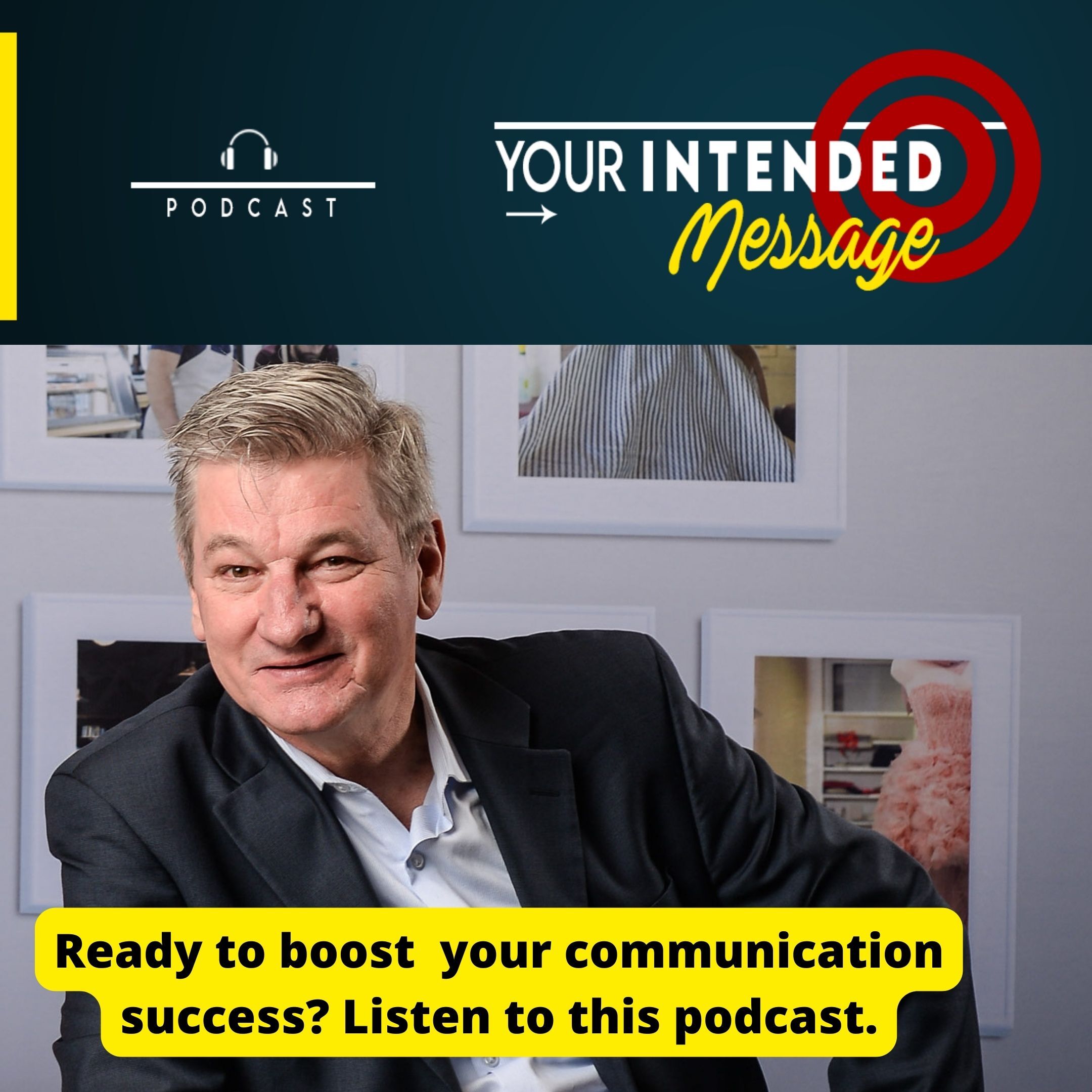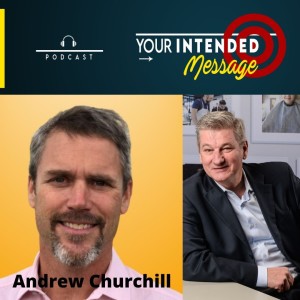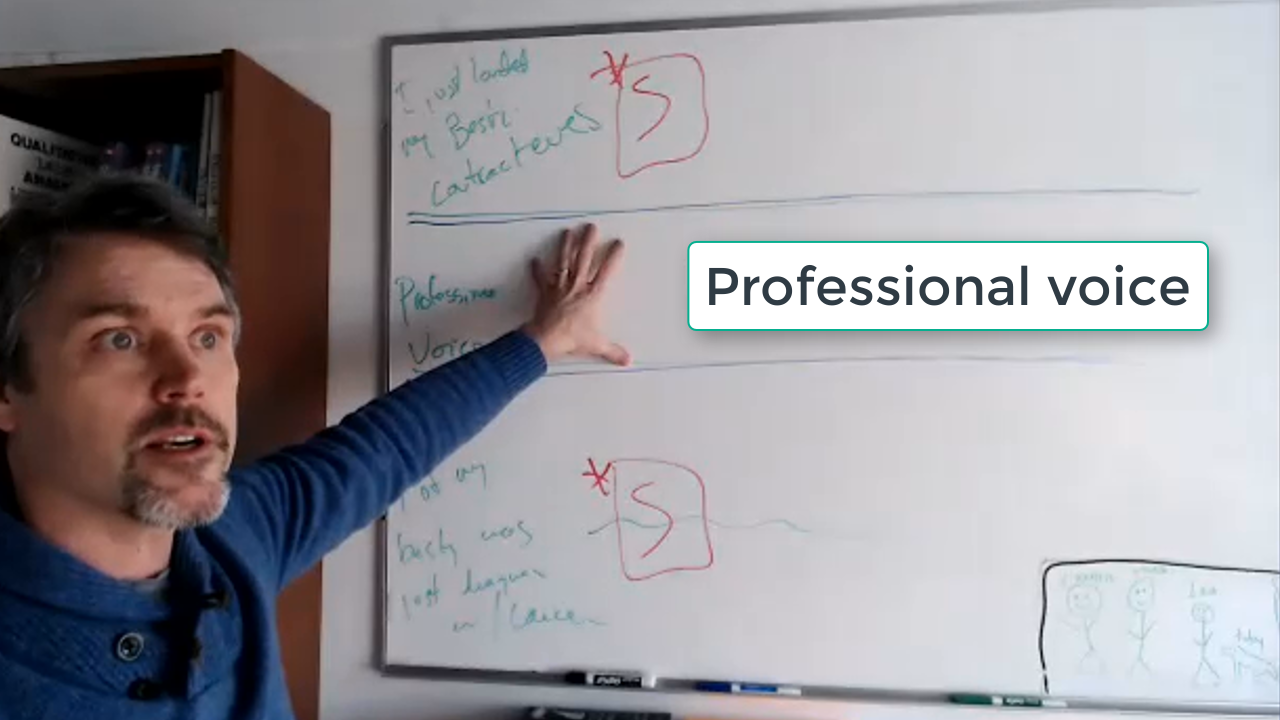
15K
Downloads
260
Episodes
Better communication skills will advance your career and business. Are you ready to enhance your understanding and results from better communication? Listen to learn how to deliver Your Intended Message. Are you willing to cross-examine communication from various perspectives? Would you like to deliver your intended message more effectively? Listen to Your Intended Message to gain a powerful advantage in your ability to convey your message to your audience, team, clients or marketplace. Learn from the mistakes and success of communication experts from around the world from different scenarios. Imagine what that means to you when you improve the success of your next conversation, presentation or message.
Episodes

Thursday Jun 16, 2022
Leverage Your Voice: Andrew Churchill
Thursday Jun 16, 2022
Thursday Jun 16, 2022
Speak with a human voice, not like a robot
Allow your voice to reflect your emotions
Andrew Churchill demonstrates the value and power of voice when presenting your message.
Episode 99 (Andrew is based in Montreal)
In this conversation with Andrew Churchill we discuss:
- The common mistake of business and technical presenters
- How to move your voice outside of the "professional zone"
- A simple exercise to explore your other voices
- The curious connection between voice and emotion
- Why audio quality and voice is more important for virtual presentations
- How your body language effects your voice
Andrew Churchill specializes in helping entrepreneurs, academics and technical experts deliver their messages in a clear way.
He teaches engineers at McGill University how to connect with their audiences.
You can find Andrew on Linkedin at Andrew H Churchill
-----
Excerpts from this conversation with Andrew Churchill
I don't try and change your voice I try and just allow you can actually use your voice. Because really what happens for most people is they fall into a professional voice. And the and the professional voice is the range of the professional voice is very, very narrow. And what happens if you present in that range is you're essentially become monotone.
-----
So if you have any three or four year olds kicking around in your life, go to the library of children's stories that they would enjoy hearing and read them.
Read them one of those stories and then with your phone, record yourself.
And what you'll hear is you actually have an enormously rich, dynamic storytelling voice.
And what happens when most people do academic presentations is they may eliminate 90% of their voice. And, and what we need to do is give you permission to use the whole thing.
And one way to recognize that is, is actually it's I'm not really just trying to be funny, when I say children's stories.
I actually do this exercise with academics and in classrooms at McGill University.
I actually bring children's books into McGill University classrooms, and have students close their eyes. And listen to someone read a children's story, right after having listened to the person read an academic abstract of a journal article.
And I tend to not have to say much more, I just do that, and simply say, Okay, who would you rather listen to, and they get the point.
-----
What you always want to think about doing as a presenter is getting the audience to lean in.
And if I'm too loud, so if I come too loud and too hard at you, you're actually going to lean backwards, I'm actually pushing you away.
And what I want to do is I want to pull you in, people don't realize so sometimes your most important message should be done quietly.
Because people will lean in and listen. Because people think it's a secret.
They think it's important. When we talk about things that are most important. We actually tend to talk quieter, not louder. T
hat's where if as a speaker, you can let yourself feel this is a problem with memorization, people memorize and then they stop feeling because they're just reading the script.
And then they're in that professional voice because they want to sound professional and they're reading a script in their head. Even if it's memorized your your brain is still reading it. It's reading your memory, versus delivering it and allowing yourself to feel.
And that's the danger of memorization is we as we no longer feel it's why a podcast conversation sounds like conversation, but a presentation often sounds like someone talking at us instead of with us.
-----
So if I was only going to make one investment if I only had 100 bucks or 150 bucks to spend, I'd spend it on the mic, not the camera.
-----
21:11
And Andrew, there's there's an interesting point I thought you raised there. And that's that, even though the audience might not be looking, observing our body language, we are aware of our body language, and how we receive the messages from our body shows up in our voice.
-----
Your Intended Message is the podcast about how you can boost your career and business success by honing your communication skills. We’ll examine the aspects of how we communicate one-to-one, one to few and one to many – plus that important conversation, one to self.
In these interviews we will explore presentation skills, public speaking, conversation, persuasion, negotiation, sales conversations, marketing, team meetings, social media, branding, self talk and more.
Your host is George Torok
George is a specialist in communication skills. Especially presentation. He’s fascinated by the links between communication and influencing behaviours. He delivers training and coaching programs to help leaders and promising professionals deliver the intended message for greater success.
Connect with George
www.SpeechCoachforExecutives.com
https://www.linkedin.com/in/georgetorokpresentations/
https://www.youtube.com/user/presentationskills
https://www.instagram.com/georgetorok/


No comments yet. Be the first to say something!